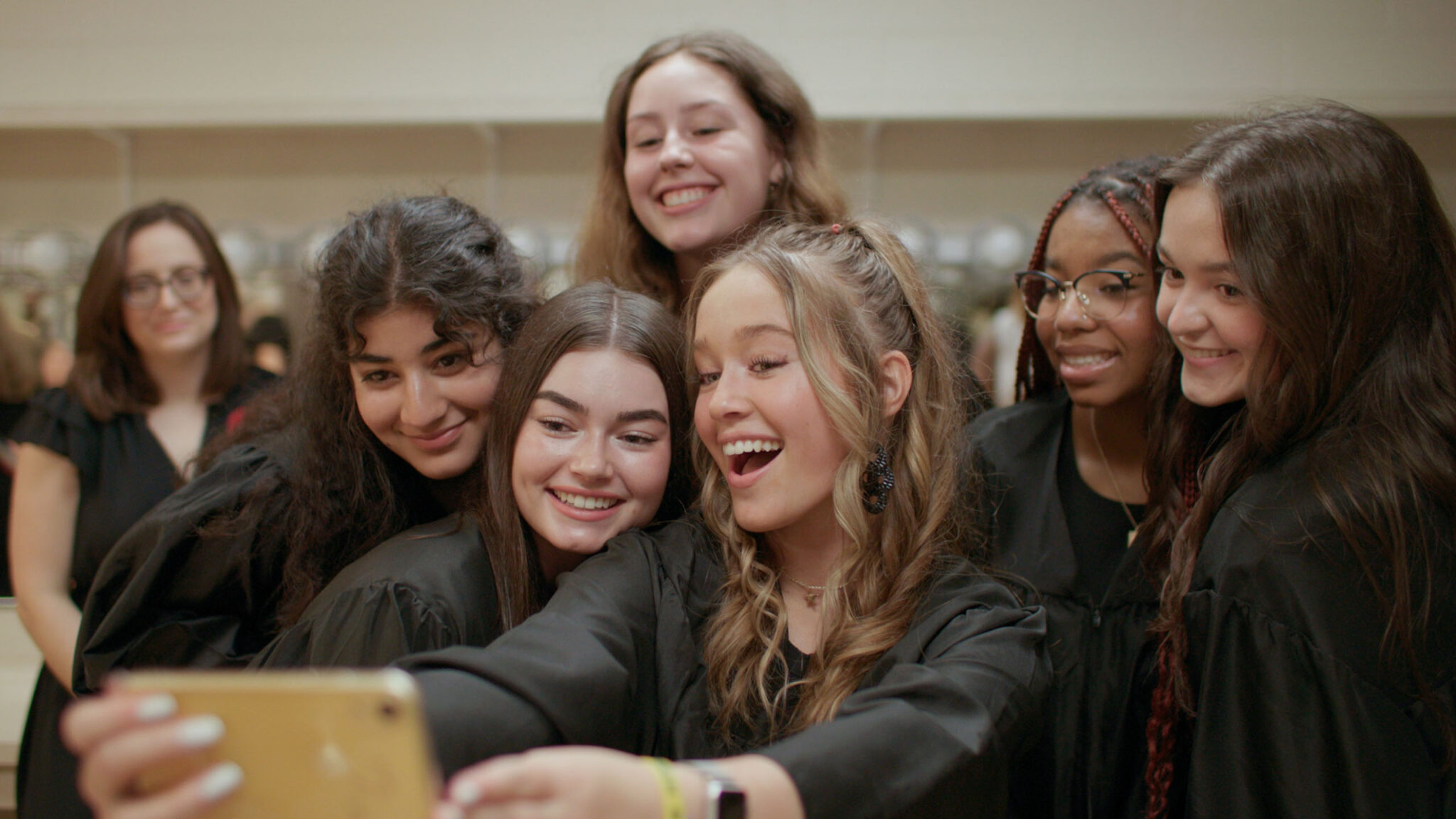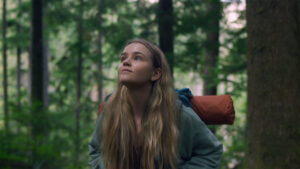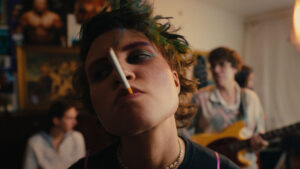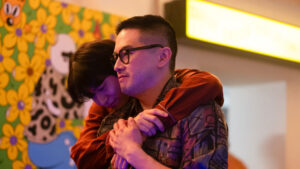By Lucy Spicer
One of the most exciting things about the Sundance Film Festival is having a front-row seat for the bright future of independent filmmaking. While we can learn a lot about the filmmakers from the 2024 Sundance Film Festival through the art that these storytellers share with us, there’s always more we can learn about them as people. This year, we decided to get to the bottom of those artistic wells with our ongoing series: Give Me the Backstory!
In January 2020, filmmaking team Amanda McBaine and Jesse Moss took home the U.S. Documentary Grand Jury Prize at the Sundance Film Festival for their film Boys State. The documentary follows a group of a thousand teenage boys who participate in the weeklong Texas Boys State program, during which they are divided into two political parties and work to build their own system of government. A film about the Girls State program seemed an obvious choice for a future project. “Immediately after our documentary Boys State was released, we began to think about making our ‘sibling’ film, Girls State,” recalls the pair. “We were determined to find a group of young women and a program that could equal or surpass the surprises we found at Texas Boys State. This was a tall order. But then we found Missouri Girls State, a big, vibrant program with strong leadership and an extraordinary group of young women of diverse backgrounds and politics who allowed us to shadow them through the intense weeklong experience.”
Four years later, Girls State made its debut in the Premieres section at the 2024 Sundance Film Festival. And while the Girls State program functions as a counterpart to Boys State, the 2024 documentary also points out differences between the two as the Missouri events take place concurrently. But the sense of urgency and formative impact that pervades the exercise is both familiar and illuminating. “The State programs offer such a dramatic and revealing space to explore how teenagers are coming of age politically in this era of increasing polarization, when democracy itself feels perilous,” note the film’s co-directors.
Read on to learn more about McBaine and Moss, including their favorite part of making Girls State and how the pair first teamed up to make documentaries. ‘Girls State’ is available to stream on Apple TV+ April 5.
Describe who you want Girls State to reach.
Girls State should reach everyone who cares about our political future and the experiences of teenage girls in America today. We’re particularly excited to share the film with high school students.
Why does this story need to be told now?
We’re at a tipping point. The democratic norms and values we hold dear, that have sustained our country for 250 years, are eroding. There are very few spaces in American life where people with different political views actually speak to each other face-to-face. Girls State is one such place. Although not without fault, the program provides a model for civil discourse and an admirable dedication to preparing young people to become fully vested, informed citizens.
How do you want people to feel after they see your documentary?
We hope people are moved, inspired, and angry. All the feels.
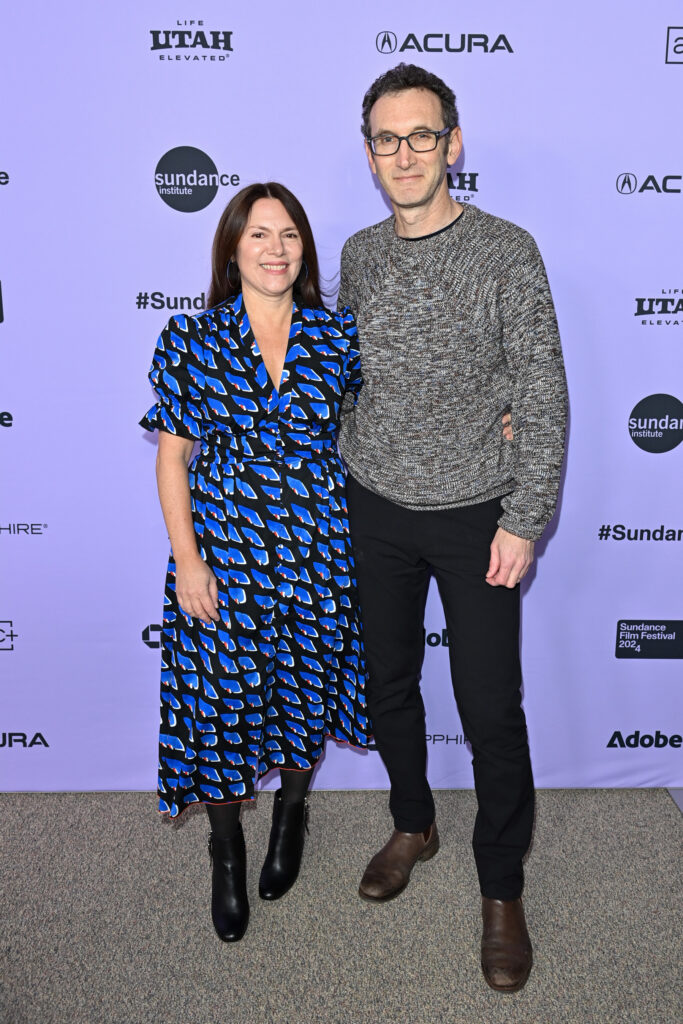
Your favorite part of making the film? Memories from the process?
Production was a monumental undertaking. We were amid 500 teenage girls and 700 teenage boys, as both Girls State and Boys State programs were held simultaneously on the same campus. We have a talented production team, but the action is fast, furious, and sometimes overwhelming. These girls never slowed down, and neither did we. We loved the intensity of the experience, of life unfolding in front of our eyes, and watching the way the weeklong journey became a crucible for our subjects, forging transformation in just a brief period of time. We watched these young women grow up in front of us. It was also meaningful that Zoe, our seventeen-year-old daughter, worked on the production. She got to work with her parents on set for the first time.
What was a big challenge you faced while making this film?
The challenge of the film was casting. We spent weeks crisscrossing the state of Missouri (which is vast), meeting girls in their homes and getting to know them. Identifying girls who were open to sharing their experience with us (a big ask) and had the requisite confidence, political ambition, and openness to make the most of the experience took patience. Finding our subjects, who all did remarkably well, was ultimately a combination of shoe-leather work, intuition, and luck, all factors in any cinema vérité film.
Tell us why and how you got into filmmaking.
Both of us discovered documentary filmmaking at the same time, in the early 1990s, and then we discovered each other, working in separate documentary production companies in New York City. We made our first film together, Speedo (2003), using Amanda’s MiniDV camera. It was a creative partnership born from a passion to make our own work, inspired by films like Harlan County, USA and Brother’s Keeper. Filmmaking is infinitely challenging and inspiring, a collaborative art form that is artistic and political and spiritually meaningful.
Why is filmmaking important to you? Why is it important to the world?
Filmmaking is storytelling, an ancient practice made new. It’s how we communicate with each other about the world and make sense of the big questions.
What is something that all filmmakers should keep in mind in order to become better cinematic storytellers?
Shoot your own films when you’re starting out. Learn to look at life and people through the viewfinder, and learn to trust your instincts. Learn when to pick the camera up and when to put it down. Watch movies, lots of movies. And study visual art and photography.
Films are lasting artistic legacies; what do you want yours to say?
We hope Girls State is a moving, inspiring, and provocative portrait of young women in America today who are finding their voice, challenging the limits that society places on them, and forging a new politics that moves beyond the polarization and partisanship that plague our country. We hope the film introduces a handful of powerful new voices to the conversation.
What three things do you always have in your refrigerator?
Skippy peanut butter, oat milk, and a bottle of Champagne (for some reason, we never drink it) in anticipation of a celebratory event that awaits after all the hard work.
Tell us about your history with Sundance Institute. When was the first time you engaged with us? Why did you want your film to premiere with us?
We premiered The Overnighters at the Sundance Film Festival in 2014, after receiving a Documentary Film Program Grant and participating in the Producers Lab. Jesse returned to advise the Edit and Music labs from 2015–2016. In 2020 we premiered Boys State at Sundance. It’s hard to overstate the impact that the Festival and the labs have had on our artistic careers. And our Festival premieres have been out-of-this-world magical. There is no better festival and film community to debut a film than Sundance, the intensity and electricity and concentrated celebration of independent filmmaking is nourishment to the heart and the mind.

